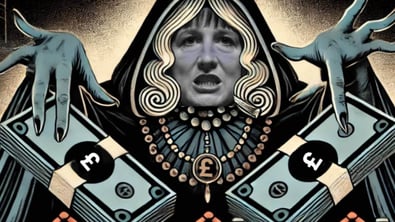The first-time buyer market is in crisis, according to property platform Rightmove.
Buyer demand fell by 20% in October compared with a year ago, as house-hunters put their property searches on hold in response to soaring borrowing costs and rising economic uncertainty.
What does the latest trend in first-time buyer demand mean for property investors? This blog post explains.
What is classed as a first-time buyer?
A first-time buyer is someone buying their first home.
The Oxford Dictionary states that it is ‘a person who is buying a house or flat for the first time and therefore has no house or flat to sell’.
The government’s definition above is based on the entitlement to a tax break.
Thus, once a home has been owned, the person can never be a first time buyer again, regardless of whether the person currently has a property to sell.
What is the latest trend for first-time buyers?
Rightmove’s monthly house price index showed first-time buyers were the most hesitant with demand down 26% in October.
Demand from “second steppers” hoping to move from their first home was down 17%, while interest among those at the top of the property ladder was down 15%.
Research from the Royal Institution of Chartered Surveyors found that new buyer enquiries fell for a sixth month in a row in October.
What does this first time buyer trend mean for the market?
Tim Bannister, Rightmove’s director of property science, said: “Though many are getting on with moves, especially those with a purchase already agreed, understandably there are people who are pausing for thought.
“There’s a group who are ready and able to move and are waiting on the sidelines for more financial certainty. Then there’s a group of first-time buyers or people hoping to trade up who were already stretching themselves financially and may now have had their plans dashed.”
The knock-on effect of this is that sellers are reducing their asking prices in attempts to agree quicker sales. In October, 8% of unsold properties on Rightmove were reduced, double the 4% recorded in the same month of 2021.
Where has the first time buyer crisis come from?
Two years of double digit (percentage) house price rises and 40-year high inflation, has now been added with the highest mortgage rates since the financial crisis.
The average two-year fix peaked at 6.65% on 20 October, according to Moneyfacts. This has decreased in the last couple of weeks and is now sitting at 6.28%. This is much higher than before the mini-budget on 23 September when it was 4.74%.
Are there advantages for first-time buyers of buying now?
Sticking it out and buying a home now could have advantages, provided they can still afford the higher mortgage rates.
The current market condition could result in fewer buyers competing with one another, allowing more room for negotiation with sellers.
Jeremy Leaf, north London estate agent and a former Rics residential chairman said: “It might be a good time to buy your first home because some prices are softening.
“We are finding that sellers are more receptive and open to negotiation than they have been for several months.
“But of course it may be that lending criteria gets stricter and job prospects worsen which might otherwise persuade a first-time buyer to hold back until the market appears more settled.”
Rob Bence from Property Hub added: “Try and remember just how bonkers the first half of this year was. People were blind-bidding on homes, they were pleading and persuading estate agents in any way they could, just to secure a viewing.
“And properties were selling for above asking price – these things were the norm, not the exception.
“Now, thanks to the common consensus that property prices may fall and changes in the market causing apprehension, it’s going to make it so much easier for first-time buyers to actually transact.”
Why is now a great time to buy a first home?
Sellers as well as buyers are deciding now is not the right time to transact.
Bence added: “There are many potential sellers who are choosing to not list their properties while they wait it out and see what happens in the market.
“This means that those who are listing are likely to be highly motivated sellers, which means putting in offers below the asking price is expected.
“I think first-time buyers should be bold with their offers – the lack of competition really strengthens their hand right now. However in areas of high demand, they may not get that cheeky discount they’re after.”
Why does the first-time buyer market create an opportunity for property investors?
There are great opportunities in the market due to the current conditions.
As discussed, fewer buyers on the market means less competition for properties and greater value for money can be achieved.
Jeremy Leaf adds: “Although many recent surveys have suggested prices will fall, none seem to be saying they will drop dramatically but more likely gradually over the next one or two years.
“On the other hand, most say values will pick up again in two to three years time, so if your financial prospects are reasonable and you would rather pay your mortgage than the landlord’s, now may be a good time to take to buy your first home.”
UK average house prices have increased 207% – more than double – since 2000.
In 1999, the average price of a UK home was £91,1999. The average in September 2022 was £294,559.
This is despite the global financial crisis in 2008, meaning that recession has little impact on property in the long term.
In the short term, the current first-time buyer position means an excellent opportunity is presented for buy-to-let investors. This is due to an increase in the number of renters on the market.
While this is going on, the government has also failed to meet its housing target and with a rising population will increase house prices in the long-term by supply and demand.
To make the first steps on your property journey, read this free Wealth Through Property e-book.
For more information call us on 01302 897131 or email office@touchstoneeducation.co.uk.












